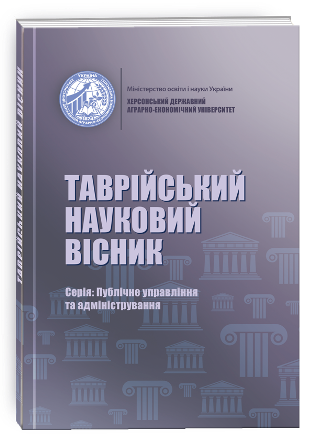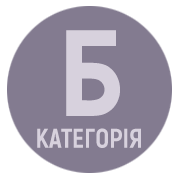THE INSTITUTIONAL DIMENSION OF ECONOMIC LOBBYING IN THE PUBLIC ADMINISTRATION SYSTEM
DOI:
https://doi.org/10.32782/tnv-pub.2024.4.1Keywords:
lobbying, public administration, institutionalization, entrepreneurship, consultative and advisory bodies, industry lobbying, corruptionAbstract
In the proposed article, the author examines the directions of optimization of lobbying activities of business entities based on the provisions of the new Law «On Lobbying» and the creation of an effective model of partnership between government and business. The result should be the formation in Ukraine of a legally regulated and socially oriented mechanism of interaction between business, non-state sectoral entrepreneurial institutions and power structures and politicians to promote and protect the interests of various branches of the domestic economy. At the same time, the functions of the industry lobbying mechanism are basic in relation to lobbying methods and, accordingly, forms of interaction between state authorities and structures that represent the interests of the industry and its constituents. the industry lobbying mechanism works in the field of public administration as a component of the market of political services, and accordingly is an important tool of interaction between business and authorities. Since the very process of this interaction definitely affects the quality of management decisions and reformation processes in the public administration system, the institution of industry lobbying should definitely be considered an important factor in effective public administration. Along with the sectoral lobbying system of big business, it is necessary to build a system of lobbying structures, through which representatives of small and medium-sized businesses will be able to effectively promote and defend their legitimate interests. In this segment of entrepreneurship, it is also necessary to rely on already existing organizational structures, we are talking about consultative and advisory bodies on issues of entrepreneurship development. It is quite difficult to use these structures as lobbyists and in connection with the lack of proper self-organization and competent personnel, direct contact with representatives of the authorities (general access mode), and access to the process of updating (drafts) of normative legal acts and program documents. The work substantiates innovations that should transform consultative and advisory bodies into full-fledged structures for lobbying the interests of small and medium-sized businesses.
References
Братаніч Б.В. До визначення поняття «соціальний маркетинг». Гуманітарний вісник Запорізької державної інженерної академії. 2007. № 30. С. 55–62.
Бушева С. М. Механізм функціонування груп інтересів: інтерпретація теорій лобізму. Політикус. 2018. Вип. 2. С. 11–14.
Ворчакова І. Є. Регіональний лобізм в сучасній політичній системі: проблеми теоретичного та прикладного характеру. Політичне життя. 2017. № 1-2. С. 27-32.
Кіржецький Ю. І., Ріжко Л.І., Кіржецька М.С. Функції галузевого лобіювання як елемент організаційно економічного механізму взаємодії бізнесу та влади. Вісник Національного університету «Львівська політехніка». Логістика. 2017. № 863. С. 82–87.
Лисюк В. С. Інституціоналізація українського лобізму як економічний феномен. Вчені записки університету «КРОК». Серія : Економіка. 2021. Вип. 2. С. 9–18.
Лубінець Д. В. До питання про типологію українського лобізму. Політикус. 2019. Вип. 4. С. 34–40.
Соколік Л. Лобіювання в процесі взаємодії публічної влади та бізнесу: теоретичний аспект. Теоретичні та прикладні питання державотворення. 2013. Вип. 13. С. 75–85.
Стельмах А. В. Проблеми реалізації лобістської діяльності в системі публічного управління: теоретичні підходи. Вчені записки університету «КРОК». Серія : Економіка. 2020. Вип. 4. С. 83–87.
Яровой Т. С. Наукові підходи до нормативно-правового регулювання лобістської діяльності в Україні. Публічне управління: концепції, парадигма, розвиток, удосконалення. 2022. Вип. 1. С. 16–176.
Groll T. Modern Lobbying: A Relationship Market [Electronic resource]. CESifo DICE Report 3 21 /2015 (September). 2015. Access mode: https: // www.google.com.ua/Fdice-report-2015-3_Groll-McKinley_October.pdf.







